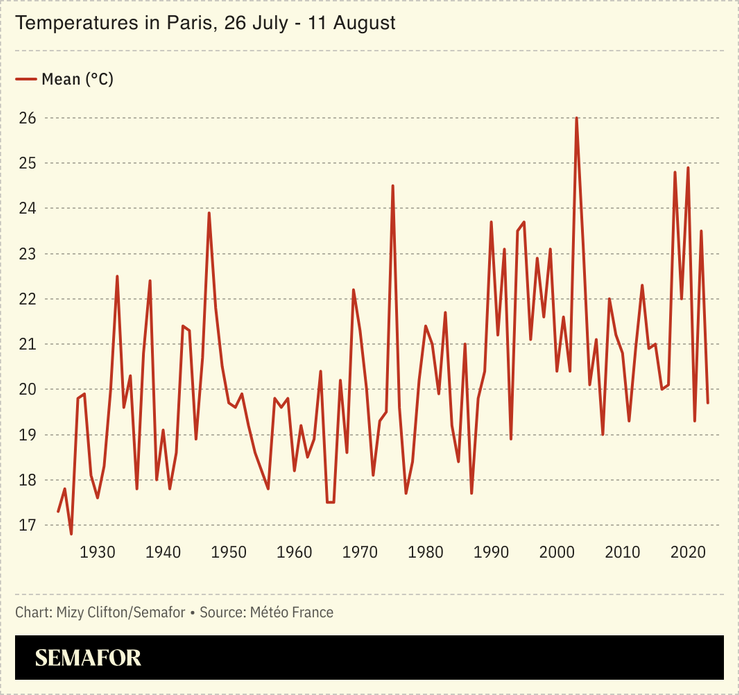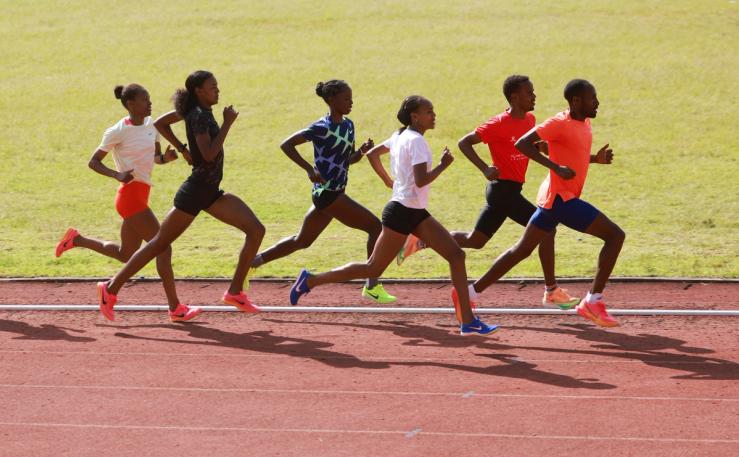The News
Extreme heat and humidity at the upcoming Paris Olympics could spell danger for athletes, according to a report by UK-based environmental groups published Tuesday.
The ‘Rings of Fire’ report said that climate change should be viewed as an “existential threat to sport,” citing elite athletes’ past experiences of sleep disruption, heat-related stress and injury, and exertional heat illness.
The report also called on sports organizing committees to reassess their relationships with fossil fuel companies, many of which continue to sponsor national teams.
The number of viable Winter Olympics hosts could be reduced to just ten countries globally by 2040 due to climate change, the International Olympic Committee said last October.

SIGNALS
Climate change affects athletes even before the games
While athletes training for the Olympics use heat labs to factor in high temperatures and humidity, it’s harder for team sports participants and those training for knock-out competitions scheduled throughout the day to prepare for such circumstances, the BBC’s sports correspondent said. Athletes from countries most vulnerable to climate change are also impacted: Rugby players can no longer train on the beaches of Namatakula, Fiji, due to severe erosion; Kenyan athletes can only train in the evenings or very early mornings to escape the heat; and Pakistan’s sports fields took several months to recover from devastating floods, a sport and climate change expert wrote in The Guardian.
Wealthier countries choose athletes’ comfort over climate crisis
Olympic organizers’ decision to forego air conditioning and install eco-friendly cooling systems in the Athletes’ Village may backfire as competitors are bringing their own portable AC units. This “raises questions about equality,” The Washington Post’s global climate correspondent, Chico Harlan argued: Poorer countries’ delegations are less likely to be able to afford portable ACs, “meaning athletes in the same Olympic Village might be sleeping at different temperatures.” Wealthier countries have undermined Paris’ sustainability efforts, Harlan wrote, signaling they care more about their athletes’ comfort than the climate crisis. The head of Australia’s Olympic Committee said that while he appreciated the eco-friendly cooling system’s concept, “this is a high-performance Games. We’re not going for a picnic.”
Organising mega sports events may be incompatible with green goals
Experts say there’s a fundamental tension between the Olympics’ green goals and putting on a mega sporting event that is rooted in “gigantism:” It is not possible to bring together thousands of athletes and millions of spectators in a sustainable way, an expert in Olympic emissions told the Financial Times. Organizers also have little control over how spectators travel, and are simply hoping that Europeans will choose the train over flights, despite airline companies pushing to fill seats to recover from the pandemic slump, Le Monde wrote.



